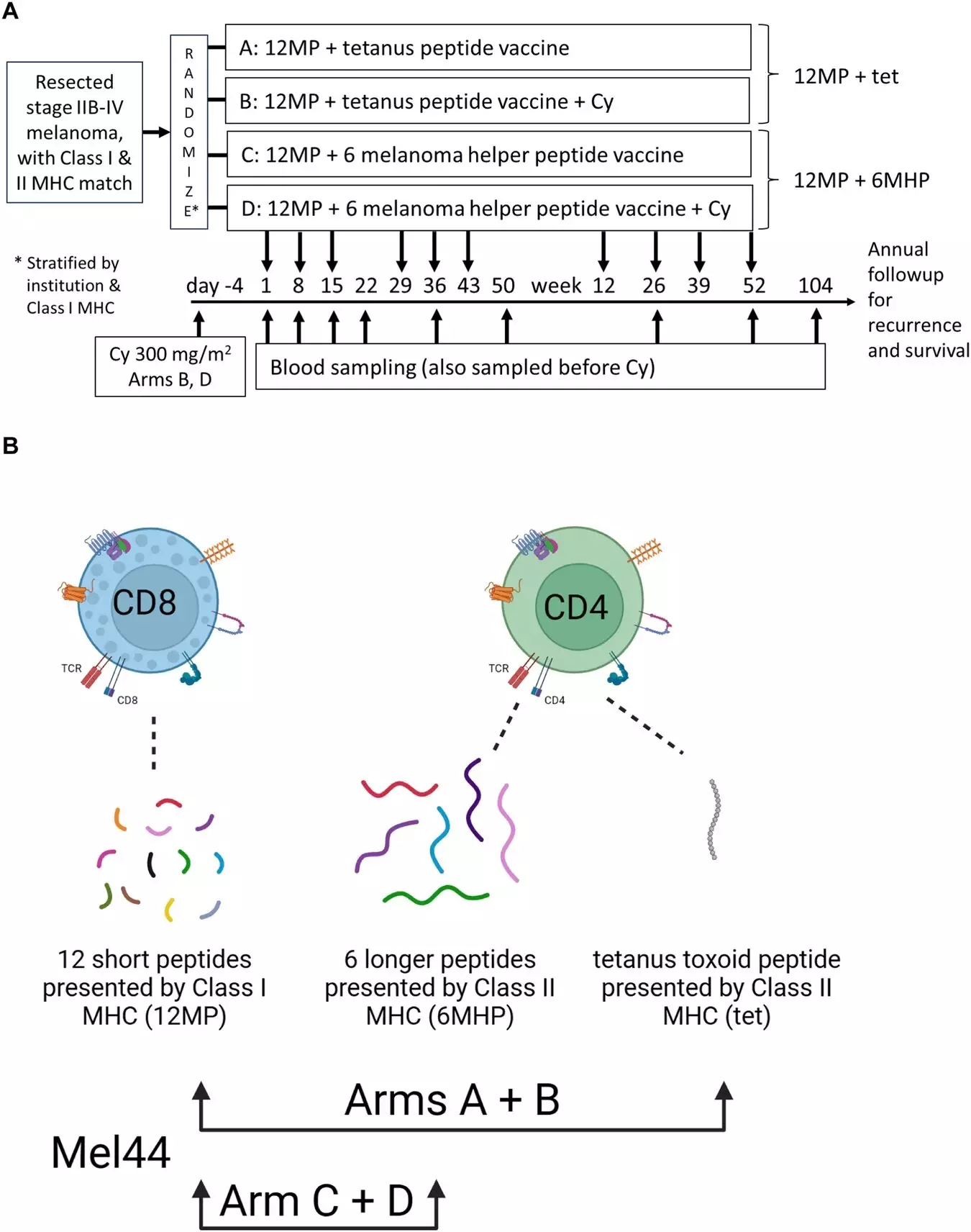Recently, a second-generation melanoma vaccine has been developed at UVA Cancer Center, showing significant improvements in long-term survival rates for melanoma patients compared to the first-generation vaccine. This groundbreaking research, led by Dr. Craig L. Slingluff Jr., has opened up new possibilities for the treatment of melanoma and other types of cancers.
Enhanced Effectiveness of the Vaccine
The key to the success of the second-generation melanoma vaccine lies in its ability to stimulate both helper T cells and killer T cells to recognize and target melanoma proteins. By simultaneously activating these important immune cells, the vaccine has been able to boost patient survival rates and reduce the likelihood of cancer recurrence. This innovative approach has shown great promise in improving outcomes for high-risk melanoma patients.
Interestingly, the researchers found that the second-generation vaccine was more effective in male patients compared to female patients. This gender difference could have significant implications for the development of future cancer vaccines. While the reasons behind this discrepancy are not yet clear, it underscores the importance of considering biological sex in the design of immunotherapies for melanoma and other cancers.
Potential Impact on Patient Care
Dr. Slingluff and his team hope that the second-generation melanoma vaccine will soon be available to patients as an additional treatment option alongside other immune therapies. By combining different treatments, the researchers believe that the benefits to patients could be further enhanced, leading to improved survival rates and quality of life. These findings have the potential to revolutionize the way melanoma and other cancers are treated in the future.
As the field of cancer immunotherapy continues to evolve, it is essential to consider factors such as age and gender in determining treatment outcomes. The results of this multicenter trial highlight the importance of personalized medicine and the need to understand the underlying reasons for differences in vaccine efficacy among patients. By addressing these disparities, researchers can strive to provide equal benefits to all individuals battling cancer.
The development of a second-generation melanoma vaccine represents a significant advancement in the field of cancer research. By harnessing the power of the immune system to target melanoma cells, this vaccine has shown great promise in improving long-term survival rates for patients. As further research is conducted and new treatment strategies are explored, the potential for more effective and personalized cancer therapies continues to grow.

